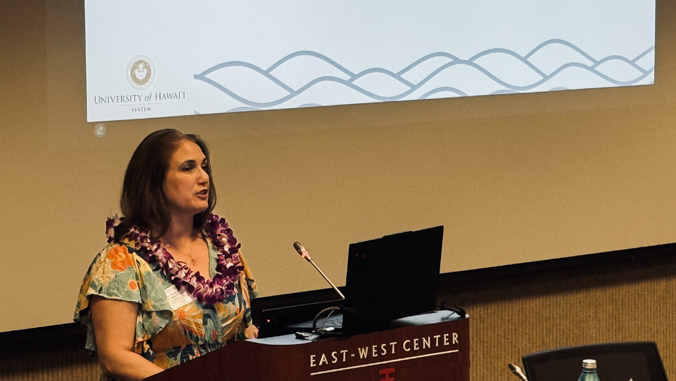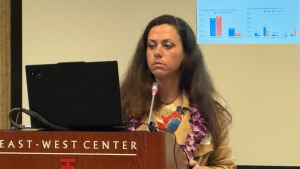
In advance of the launch of the Red Hill Registry this summer, a team of international, national and local public health and environmental science experts convened May 8–9, at the East-West Center’s Imin International Conference Center to discuss the health impacts of the 2021 jet fuel spill at Red Hill, and to advise the University of Hawaiʻi System-based registry on data protocols and methodologies.

The Red Hill Registry, led by the UH System Office of Strategic Health Initiatives in partnership with the UH Mānoa Thompson School of Social Work and Public Health, Water Resources Research Center and John A. Burns School of Medicine, as well as University Health Partners of Hawaiʻi, aims to track health outcomes and provide resources for those affected by the fuel spill.
In May, the Thompson school’s Registry Hub convened, for the second time, a Scientific Oversight Workshop with key experts from around the world to develop the best ways to track the health impacts of thousands of Hawaiʻi residents who consumed the fuel-tainted water.
“The Scientific Oversight Workshop aimed to again bring together independent experts whose experience and perspectives will support the success of our project,” said Catherine Pirkle, the registry’s scientific director and professor of public health in the Thompson School of Social Work and Public Health.
Topics included the chemistry of chemicals in drinking water, statistical methods to estimate exposure, analysis of the media surrounding the Red Hill water crisis, environmental health communication with the community and the health impacts of environmental hazards.
“Our Scientific Oversight Workshops are vitally important to develop a registry that is scientifically sound, culturally grounded and co-created with the community,” said Rosana (Sanie) Weldon, director of the Red Hill Registry. “In addition to assisting the community with referrals and educational resources, a main goal of the Registry is to be a data repository that researchers can use to investigate links between exposure and long term health effects. These conversations are also important to the broader community that has been exposed to jet fuel in the drinking water, such as in Washington Crossing, Pennsylvania.”
Another scientific workshop will take place prior to the launch of the Red Hill Registry this summer.
Formal enrollment in the Red Hill Registry is set to begin in mid-2025, with pre-enrollment now open.

